Need to design modern, synchronous AI governance mechanism
Expressing their approval of the approach to drafting this Law as a framework Law to manage and promote research, development, deployment and use of artificial intelligence in Vietnam, the National Assembly deputies highly appreciated the Government's preparation; the draft Law dossier was elaborately built, ensuring compliance with regulations; at the same time, the proposal to abolish a number of related articles and clauses in the Law on Digital Technology Industry is necessary to avoid overlap, creating a unified legal basis for managing and promoting AI development. However, to complete this Law project, the deputies requested the Drafting Committee to continue reviewing and amending, supplementing and abolishing a number of articles and clauses appropriately.
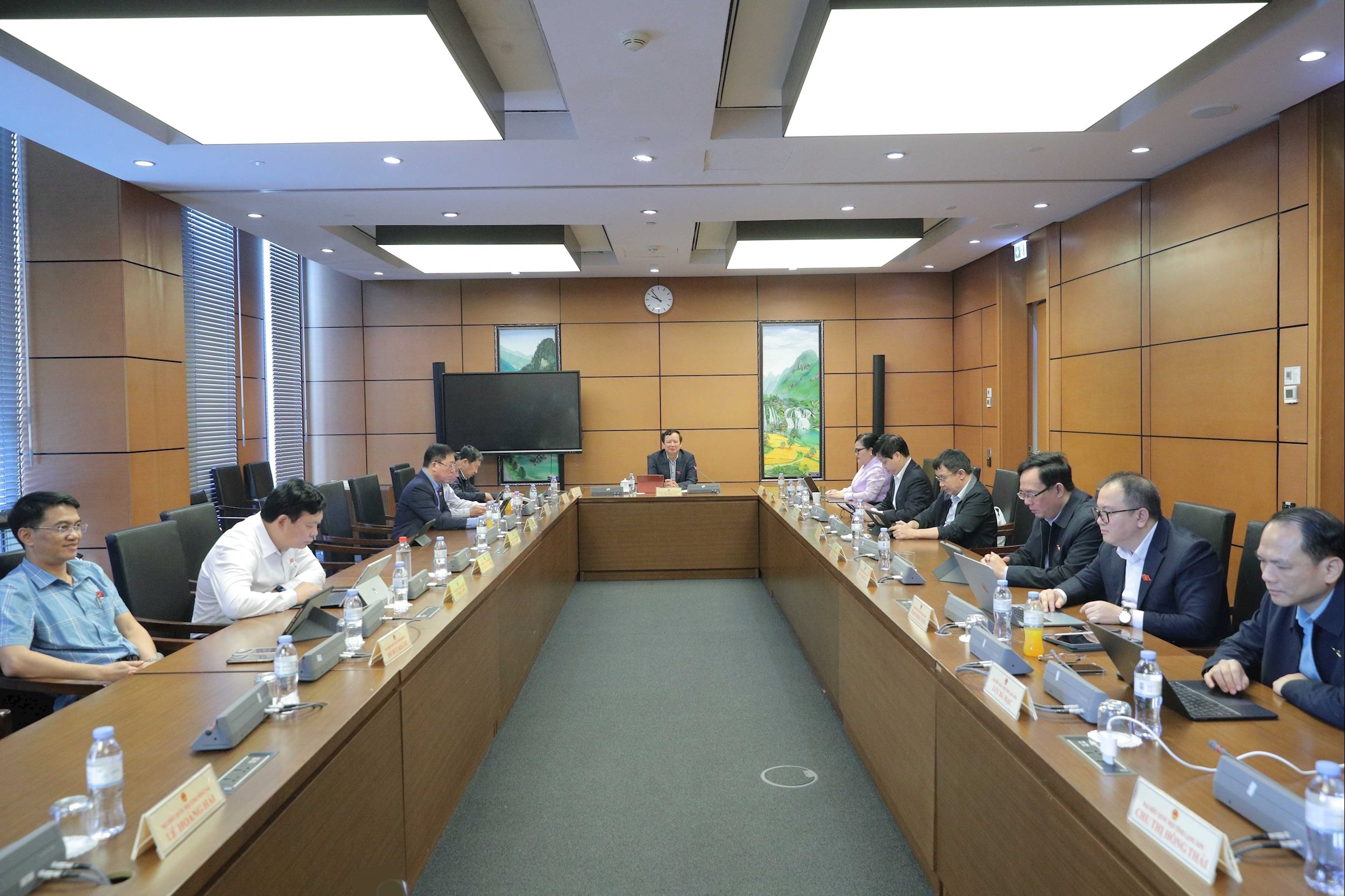
Scene of Group 6 meeting on the morning of November 21. Photo: Ho Long
Specifically, regarding the scope of regulation and applicable subjects, National Assembly Deputy Pham Trong Nghia (Lang Son) said that it is necessary to continue clarifying this issue. Because currently, the provisions related to "research activities" in the draft are at risk of overlapping with the contents already regulated by the Law on Science , Technology and Innovation. Meanwhile, the draft does not have a specific policy to promote research on artificial intelligence systems, and has not clearly defined the subjects performing this activity. Therefore, the delegate suggested clarifying which activities are within the scope of regulation of the Law, which activities are under the current Law to ensure feasibility, consistency and avoid overlap.
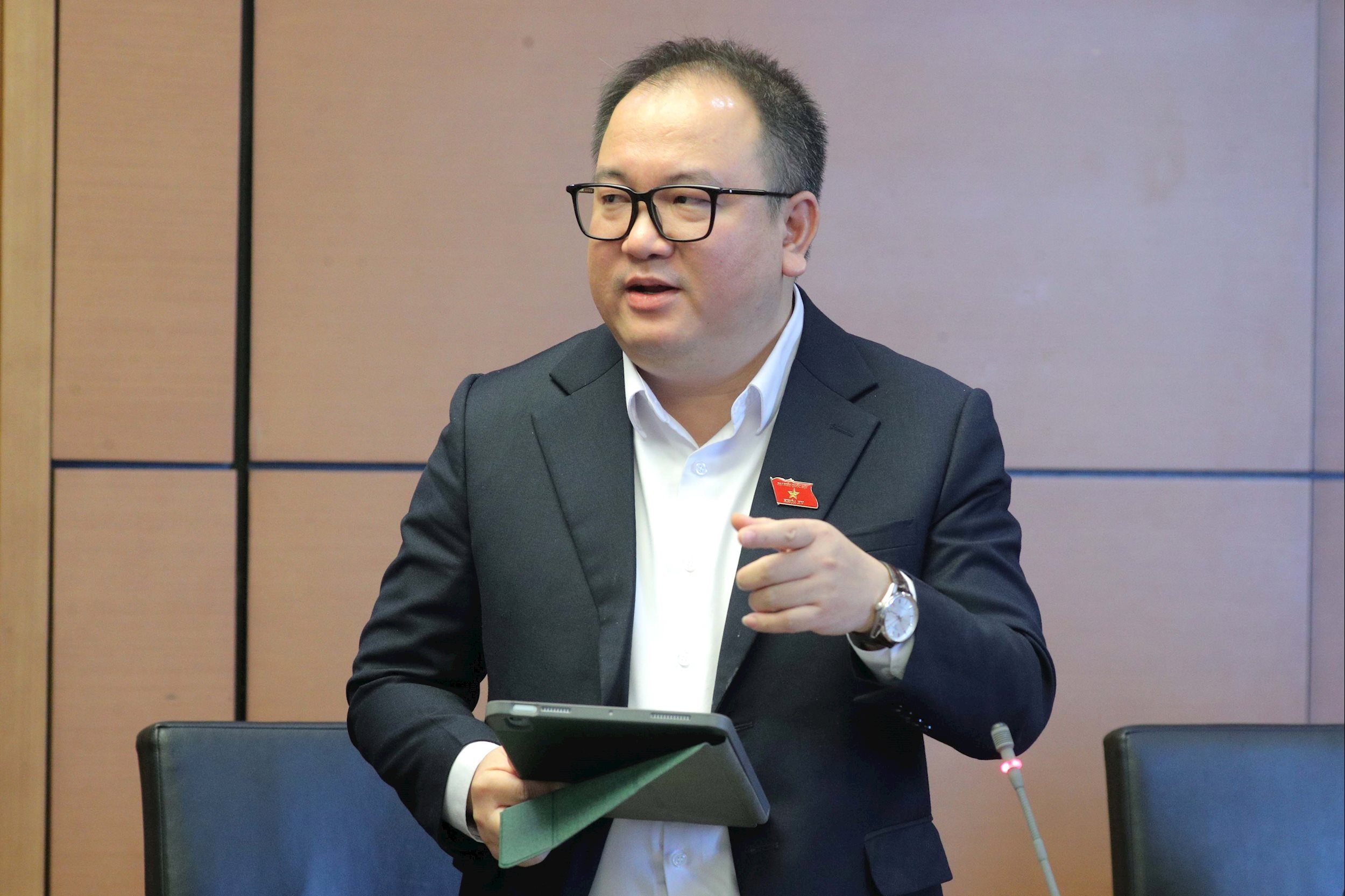
National Assembly Deputy Pham Trong Nghia ( Lang Son ) gives comments on the draft Law on Artificial Intelligence. Photo: Ho Long
Regarding the explanation of terms, National Assembly member Pham Trong Nghia paid special attention to the concept of "fine-tuning" in the general-purpose artificial intelligence model. The representative said that this is a specialized term, not yet popular, so the content needs to be clearly defined to facilitate the application and enforcement of the law later. The draft currently only stipulates one sentence about the National Committee on Artificial Intelligence, which does not clearly show: legal position; functions, tasks, powers; organizational structure, operating mechanism; relationship with ministries and branches. Accordingly, the representative suggested clarifying the necessity of establishing this institution, and at the same time assessing the conformity with the policy of streamlining the apparatus according to the Party's regulations. In case of continuing to maintain it, it is necessary to supplement regulations or assign the Government to specify the above issues in detail.
Regarding prohibited acts, delegates said that the draft Law has not yet stipulated prohibited acts, while this is an important "legal shield" to protect human rights, ensure fair competition and comply with international standards. Meanwhile, the world's advanced Law on Artificial Intelligence (AI) clearly stipulates prohibited acts such as abuse of personal data, systematic discrimination, use of AI for harmful purposes, etc. Therefore, it is proposed to add a separate article on prohibited acts, based on the principles: transparency, safety, accountability, human supervision, fairness, non-discrimination and support for controlled innovation.
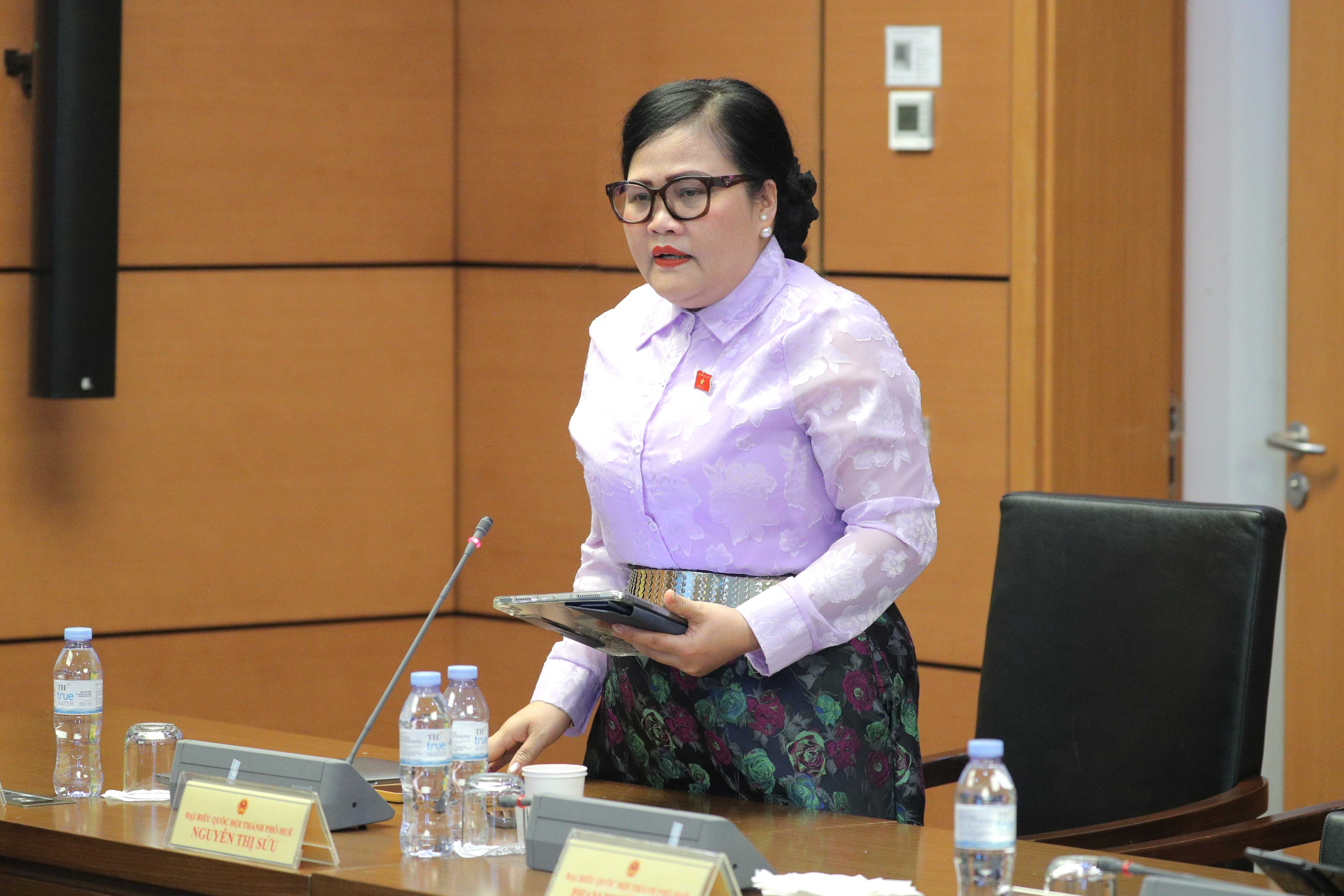
National Assembly Delegate Nguyen Thi Suu (Hue City) spoke at the morning discussion session of November 21. Photo: Ho Long
Comments on the draft Law, National Assembly Deputies Nguyen Thi Suu (Hue City) focused on analyzing regulations related to infrastructure, human resources and AI ethical framework - key pillars that determine the effectiveness of implementing the Law in practice.
Specifically, in Chapter III (Articles 17 and 18) regulating artificial intelligence infrastructure, delegates said that the roadmap for implementing national AI infrastructure, the roles of ministries, branches, localities as well as enterprises and research institutes in the construction and operation process have not been clearly defined. Delegates proposed to supplement a specific implementation plan with timelines, responsibilities of each agency and monitoring mechanism to ensure feasibility when the Law is promulgated.
Regarding human resource development (Article 24), delegate Nguyen Thi Suu said that the draft Law only sets out the objectives, but does not have a real support mechanism for training institutions and learners such as funding, international training standards or joint programs with businesses and research institutes. Therefore, it is necessary to supplement scholarship policies, support training and promote public-private partnerships.
Regarding the National AI Ethics Framework (Article 27), delegates said that the current regulations are only principled and lack mechanisms for monitoring, evaluating and handling violations, making it difficult to ensure binding in practice; at the same time, the term "AI ethics" has not been clearly defined and has not assigned specific responsibilities to organizations and individuals when violating. Therefore, delegates proposed to change the phrase "review" to "public" in the regulations on updating the ethics framework; at the same time, add provisions on the establishment of a National AI Ethics Authority responsible for monitoring, evaluating and handling violations; determine compliance obligations for organizations and individuals developing or operating high-risk AI systems; affirm the legally binding value of the AI Ethics Framework, in which violations can be subject to administrative or criminal sanctions; and encourage the participation of social organizations, academia, and businesses in the activities of building and evaluating AI ethics. "Only when the above mechanisms are completed can the AI Ethics Framework be effective, ensuring that technology develops in the right direction, safely and for people," delegate Nguyen Thi Suu emphasized.
What is the responsibility when AI makes mistakes?
Discussing the draft Law on Artificial Intelligence, National Assembly Deputy Pham Nhu Hiep (Hue City) said that artificial intelligence is creating profound changes in the medical field, from surgery, diagnosis to scientific research. The delegate cited that remote surgery has appeared for more than 20 years, and to date, many robot systems are capable of performing endoscopic surgery without direct human intervention. With the rapid development of technology, if allowed, AI can completely take over some surgical steps, even threatening to change the traditional role of surgeons. In imaging diagnosis, AI has been widely applied in hospitals, including Hue Central Hospital, supporting the reading of X-rays, CT scans, and brain films.
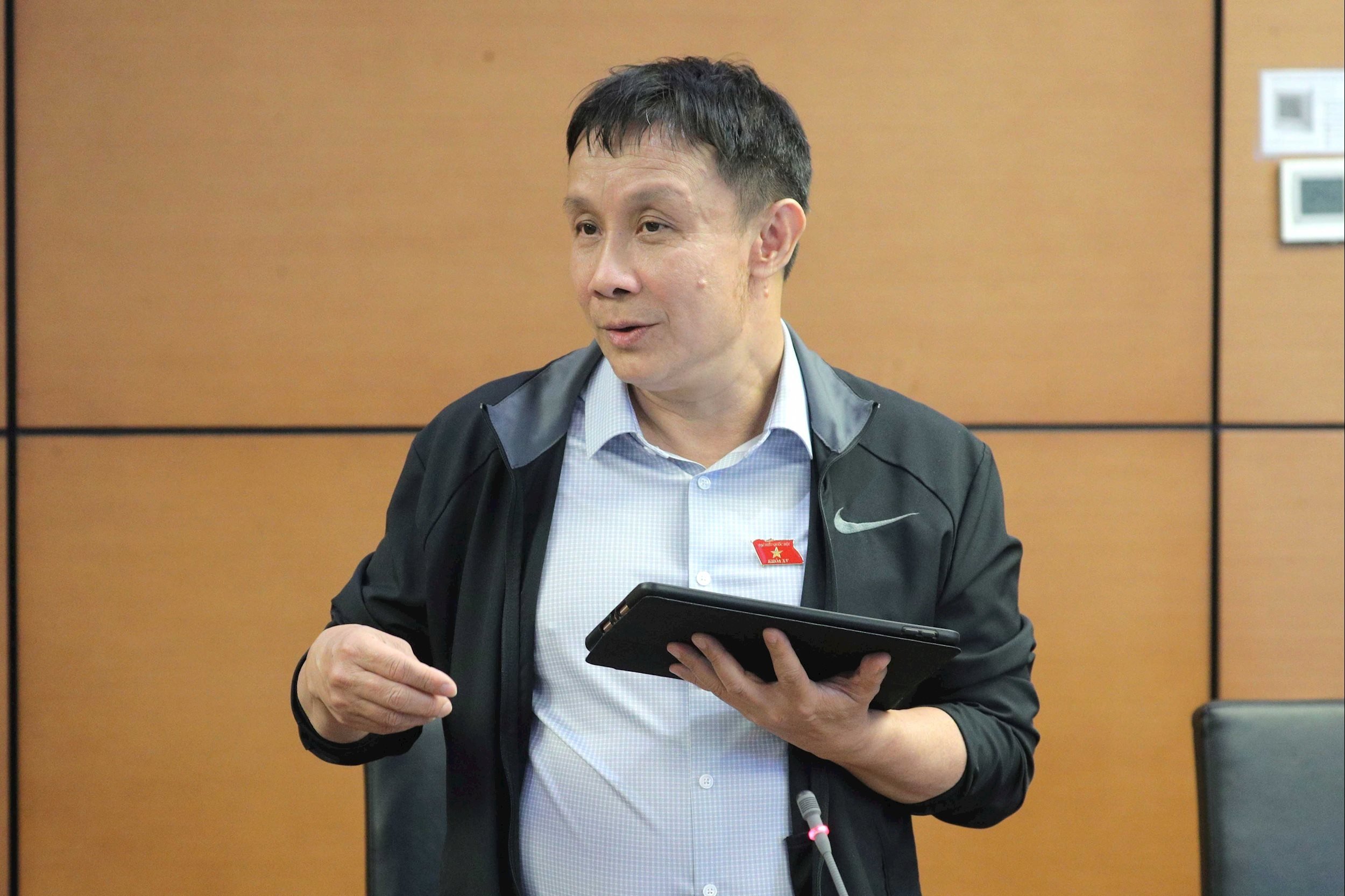
National Assembly Delegate Pham Nhu Hiep (Hue City) expressed his opinions on the draft Law on Artificial Intelligence at Group 6. Photo: Ho Long
However, delegates emphasized the need for accountability when AI makes mistakes. Currently, all AI results must still be checked and verified by clinicians and radiologists. When the results do not match clinical reality, the doctor will edit and update them so that the AI can continue to learn. This “passive learning” process is being applied by many hospitals, but a clear legal framework is still needed to ensure patient safety.
Delegate Pham Nhu Hiep also expressed concerns about the impact of AI on scientific research, as plagiarism checking software has become popular and some AI tools can now write almost an entire doctoral thesis in just one day based on the provided data. This poses a major challenge to research ethics and scientific integrity, and should be considered for inclusion in specialized legal regulations.
Regarding the legal responsibility of AI providers (Article 13), delegates proposed to clarify the responsible entity when AI systems cause incidents or accidents. The case of self-driving cars is a typical example: if a collision occurs, it is necessary to determine the responsibility of the system, the manufacturer or the operating management unit. The delegate cited the Tesla car accident in 2015 that forced the manufacturer to pay large compensation, affirming that AI cannot be responsible on its own, but the responsibility must belong to humans - the organizations and individuals who design, produce and put the system into use.
Referring to the concept of AI ethics, which is applied by many countries to determine what AI actions are allowed and not allowed to perform, delegate Pham Nhu Hiep also acknowledged that in the context of AI systems having the ability to self-learn, self-think and even go beyond the original limits of the manufacturer, the development and operation of AI must be placed within the legal and ethical framework. This is not only to ensure safety for society but also to create a foundation for the healthy development of the AI industry in Vietnam.
To effectively manage AI, input data and intellectual property must be clarified.
Agreeing with the above opinions, National Assembly Deputy Trinh Xuan An (Dong Nai) also made a series of profound comments related to the draft Law on Artificial Intelligence, focusing on major groups of issues: input data, intellectual property, scope of application, risk management approach and implementation organization model.
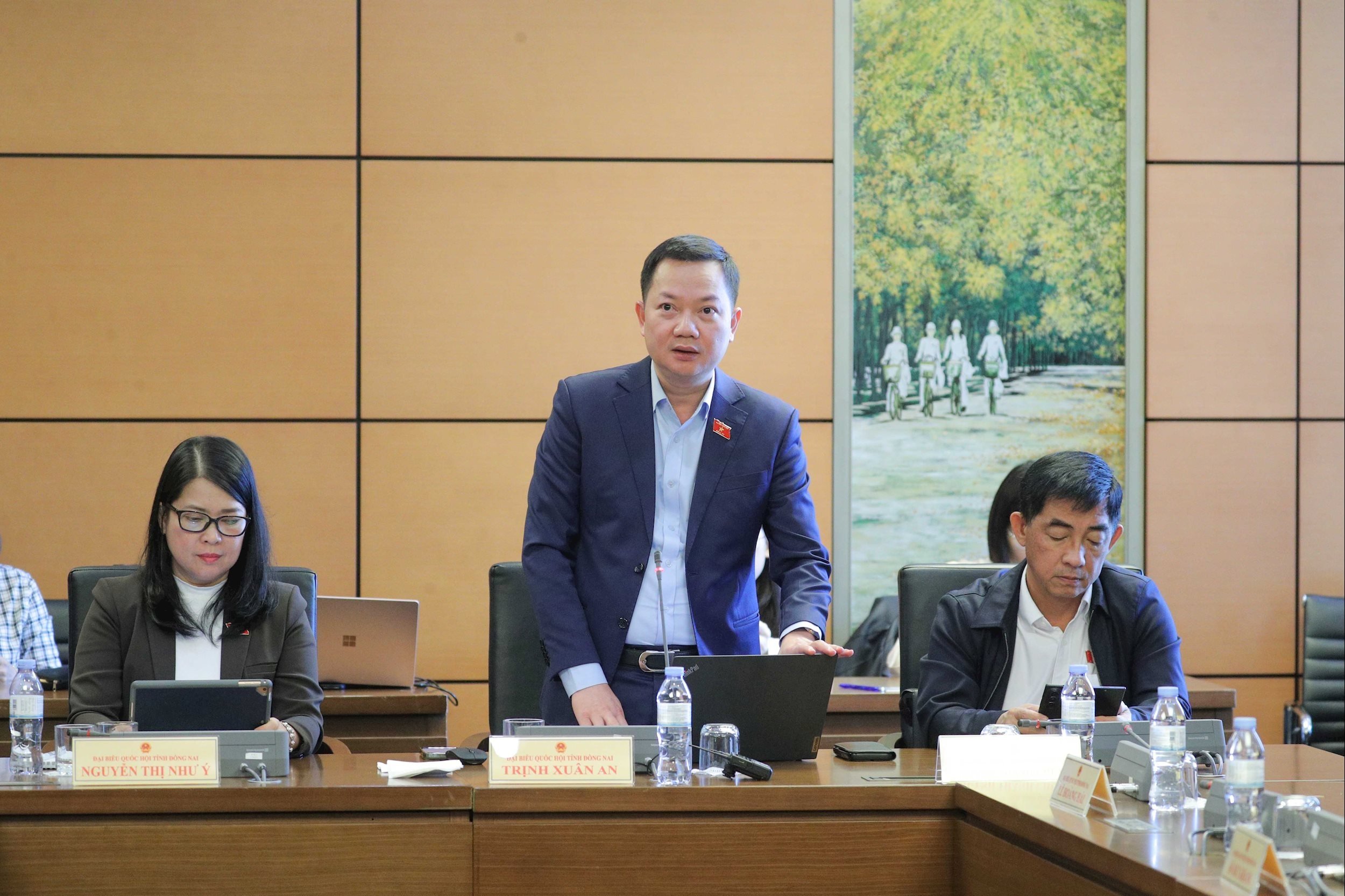
National Assembly Delegate Trinh Xuan An (Dong Nai) speaks at Group 6 on the morning of November 21. Photo: Ho Long
Regarding input data for AI, delegates said that data is the foundation of artificial intelligence, but the draft law has not clarified this content. Regulations on data are currently under the Data Law and the Law on Personal Data Protection. If not specifically mentioned in this law, at least there must be a full reference. Delegates agreed with the requirement that data must be "correct - sufficient - clean - alive", but emphasized the need to add the criterion that data must be systematized and continuously upgraded, because this is a condition for AI to operate effectively and safely.
Regarding intellectual property, National Assembly member Trinh Xuan An commented that the draft's content is still too sketchy, while AI is a human product and is closely linked to issues of copyright, ownership, legal responsibility and ethics. If the intellectual property component is not clarified in the law, AI management will be very difficult. Therefore, the delegate recommended amending the Intellectual Property Law and at the same time regulating ownership issues in this law.
Regarding the scope of application, the delegate pointed out the illogicality in Article 1 when the law excludes the application of AI for national defense, security, cryptography, and intelligence, but the following clauses open up the possibility of adjustment if these systems are used for other purposes. In the digital environment, it is difficult to separate AI for security and defense and civil purposes, because AI can simultaneously support in medicine, the defense industry, or unmanned systems. Therefore, exclusion by field is not feasible. The delegate suggested building a common regulatory framework, instead of dividing by purpose of use.
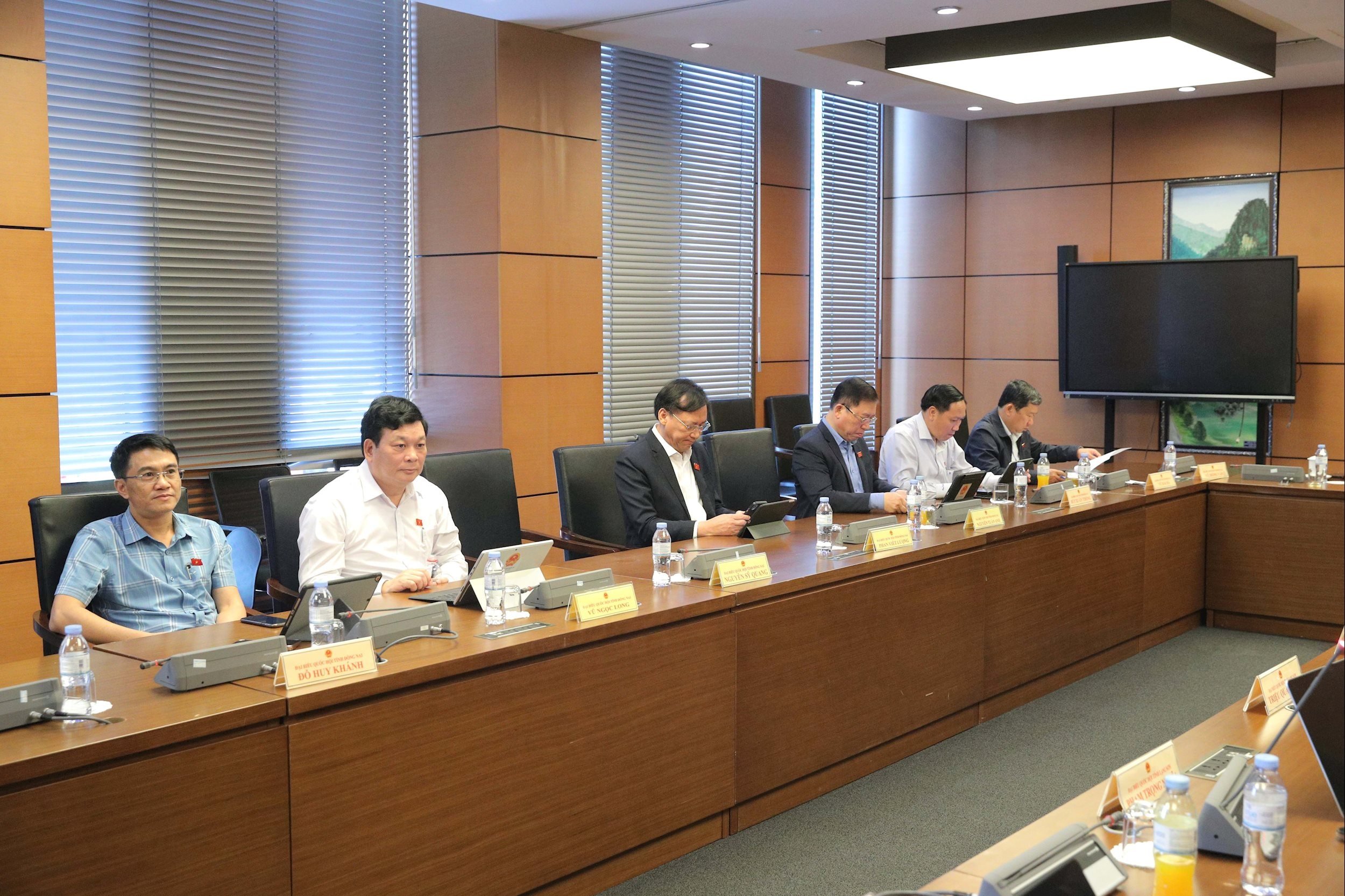
National Assembly deputies of Dong Nai province at the discussion session of Group 6 on the morning of November 21. Photo: Ho Long
Regarding the approach to risk management and classification, the delegate said that the draft is “applying” the European management model, creating unnecessary burdens in the context of Vietnam needing to encourage AI development. The four-level risk classification as in the draft is both complicated and inconsistent with the Law on Product Quality. The delegate proposed to classify only two groups: risky and risk-free AI products, and combine risk management with management based on output efficiency and economic impact. He also said that the regulation for businesses to self-assess risks and assigning the Government to set criteria is “half-closed, half-open”, difficult to implement in practice.
Regarding the implementation organization model, National Assembly member Trinh Xuan An expressed concerns about the proposal to establish an extra-budgetary financial fund and a National Committee on AI. According to the delegate, it is necessary to carefully consider the necessity of these institutions, avoiding the situation of "establishing funds and committees for everything" but with low efficiency. If really necessary, the AI fund should be integrated into existing funds, except for special cases such as funds serving national defense and security. The delegate also noted that AI must be linked to economic activities and the initiative of enterprises, so the management model needs to be streamlined and oriented towards real efficiency.
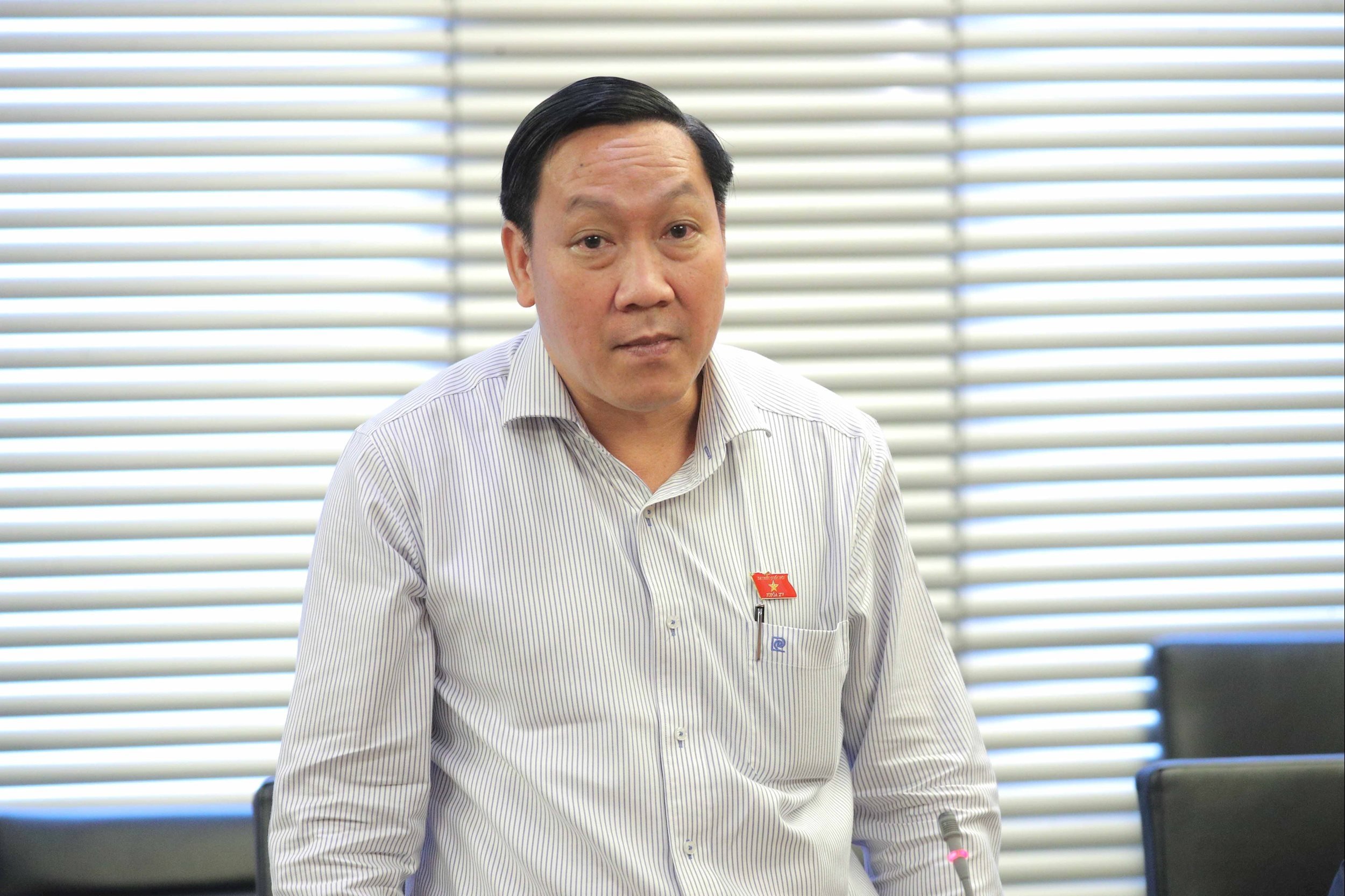
National Assembly Delegate Bui Xuan Thong (Dong Nai)
Agreeing with the above opinion, National Assembly deputies Nguyen Thi Nhu Y and Bui Xuan Thong (Dong Nai) also emphasized the ethical framework in the use of artificial intelligence. According to delegate Bui Xuan Thong, if it is stipulated that users must be responsible for decisions made by AI, then in reality the final decision is still human. AI is just a tool to provide reference information. The person who makes the final decision is responsible for that decision. Therefore, the ethical framework should focus on human responsibility in using information from AI, not on stipulating that AI must be responsible.
Regarding the issue of handling violations, delegates said that the draft generally states that it can be handled administratively, civilly, or criminally, but is not clear about the limits of responsibility. Therefore, it is recommended to clearly define which behaviors will be subject to criminal responsibility, which behaviors will be subject to administrative responsibility, and the specific responsibilities of the provider, developer, and user. At the same time, it is also necessary to supplement prohibited behaviors and redesign this framework to be clear, both to create conditions for AI development and to clearly define the responsibilities of relevant parties.
Source: https://daibieunhandan.vn/artificial-intelligence-must-operate-in-the-law-and-moral-system-10396524.html



![[Photo] President Luong Cuong receives Speaker of the Korean National Assembly Woo Won Shik](/_next/image?url=https%3A%2F%2Fvphoto.vietnam.vn%2Fthumb%2F1200x675%2Fvietnam%2Fresource%2FIMAGE%2F2025%2F11%2F21%2F1763720046458_ndo_br_1-jpg.webp&w=3840&q=75)
![[Photo] General Secretary To Lam receives President of the Senate of the Czech Republic Milos Vystrcil](/_next/image?url=https%3A%2F%2Fvphoto.vietnam.vn%2Fthumb%2F1200x675%2Fvietnam%2Fresource%2FIMAGE%2F2025%2F11%2F21%2F1763723946294_ndo_br_1-8401-jpg.webp&w=3840&q=75)

![[Photo] National Assembly Chairman Tran Thanh Man holds talks with President of the Senate of the Czech Republic Milos Vystrcil](/_next/image?url=https%3A%2F%2Fvphoto.vietnam.vn%2Fthumb%2F1200x675%2Fvietnam%2Fresource%2FIMAGE%2F2025%2F11%2F21%2F1763715853195_ndo_br_bnd-6440-jpg.webp&w=3840&q=75)
![[Photo] Visit Hung Yen to admire the "wooden masterpiece" pagoda in the heart of the Northern Delta](/_next/image?url=https%3A%2F%2Fvphoto.vietnam.vn%2Fthumb%2F1200x675%2Fvietnam%2Fresource%2FIMAGE%2F2025%2F11%2F21%2F1763716446000_a1-bnd-8471-1769-jpg.webp&w=3840&q=75)
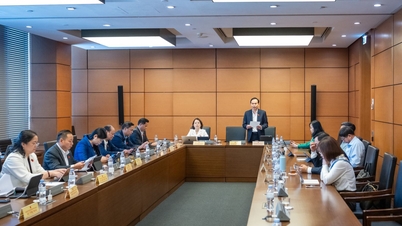

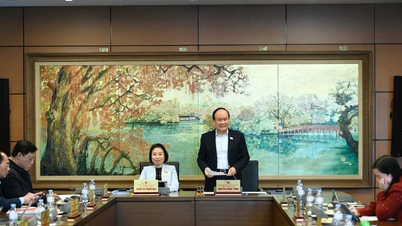
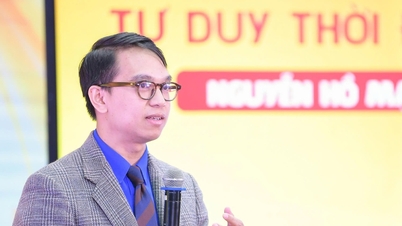

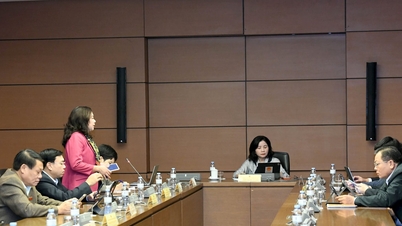
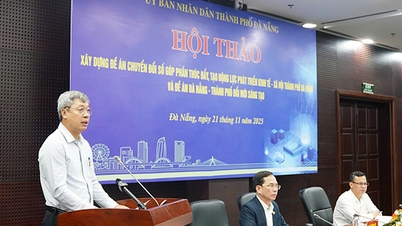



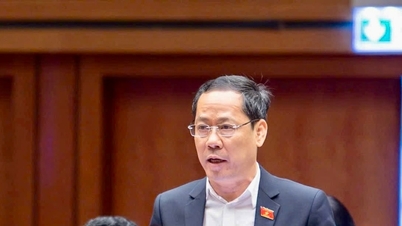


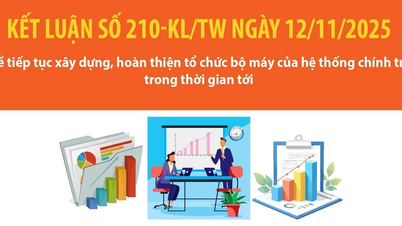

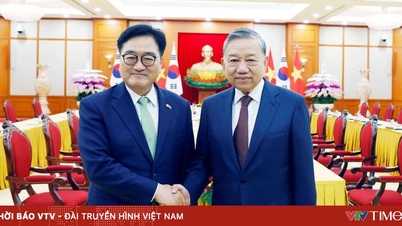





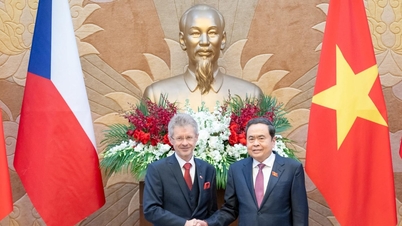


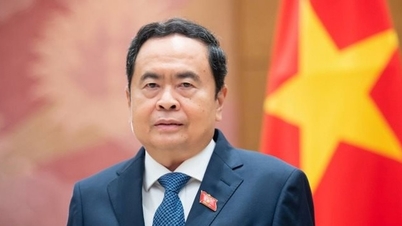
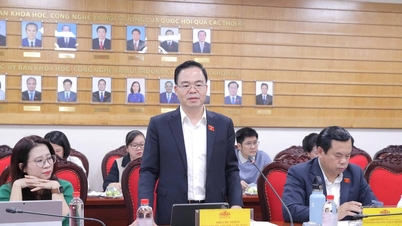













































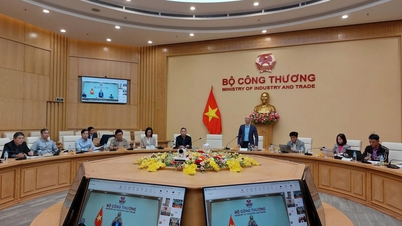

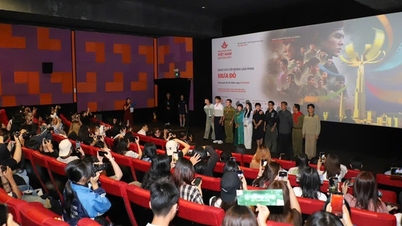



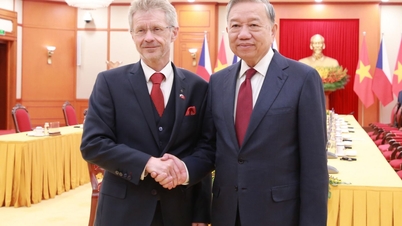

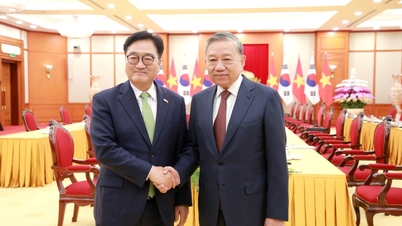








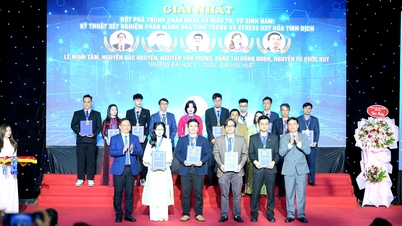
















Comment (0)